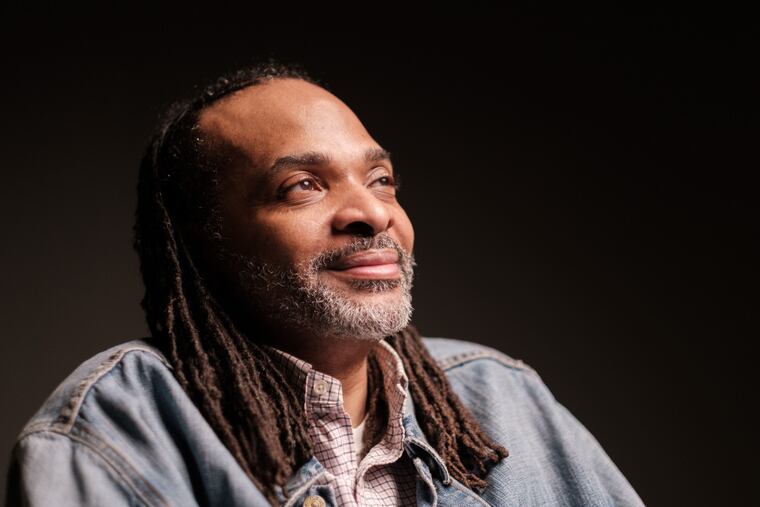A support group for gunshot survivors is now the focus of a documentary — and it’s beautiful | Helen Ubiñas
“Our city is so saturated with gun violence that right now the only focus is those who are dying. But there is an even larger problem with people being shot, and having lifelong injuries.”

I know these men.
I know their stories of navigating the crushing aftermath of gun violence, mostly on their own.
I’ve introduced you to many of them in this space.
And still I got goose bumps watching them in video profiles created by Glenn Holsten, a local filmmaker who is also working on a full-length documentary about Philadelphia’s support group for paralyzed gunshot survivors.
The four-part series, with one video posted every month, is called “Beyond the Bullet: Gunshot Violence Survivors Speak.” It can be seen on OC87 Recovery Diaries, a nonprofit mental health website that grew out of another of Holsten’s films.
First, there’s Charles “Chuck” Horton.
In the eight-minute video, Horton, 49, speaks slowly, as if a movie has just clicked on in his head, and he’s waiting on us to watch it with him.
» READ MORE: Paralyzed gunshot survivors started a support group. A year later, they are still going strong. | Helen Ubiñas
“I remember what it feels like to lay on the ground and feel your blood coming out of your body, dying … you know, drifting,” he says, as the camera settles on him.
“When I talk about it, I’m in that moment, and you feel your life leaving you and you feel yourself, at 17: Am I dying? I think I’m dying.”
Horton didn’t die, but he never walked again.
In the years since, he’s become a vocal advocate for gun violence survivors and people with disabilities.
He’s also one of the founding members of the support group that for more than a year met in person, and then virtually during the pandemic.
Jaleel King, 44, is the second member to be featured.
“If you don’t tell your own story, someone else will tell it for you,” he says, as his video begins, “and they may not tell it the way you tell it.”
» READ MORE: The hidden toll of gun violence: shooting victims face lifelong disabilities and financial burdens | Special report
King, a photographer, not only shared his story about the bullet that stole his ability to walk at the age of 8, he photographed the filming, capturing fellow members in poignant portraits.
They are beautiful, as are the videos — tenderly told tales of trauma, but also of resiliency.
When I mention that to Holsten, who learned of the group through one of my columns, he says simply: “There is beauty in the struggle.”
That’s evident in much of Holsten’s work, including his 2016 documentary that focuses on mental health, recovery, and rebuilding inside a Germantown Recovery Community beauty parlor.
“Much of what I learned from making that film, I have incorporated into my work ever since, specifically the collaborative nature of storytelling,” he said.
I’ve made no secret of how protective I am of this group, created after Jalil Frazier, another survivor featured in an upcoming video, asked me to help connect him with other paralyzed survivors.
So to hear Holsten say this told me he understood — both how inspiring their individual journeys are, but also how remarkable their collective path together has been as “A Wheel Family,” a name they’ve given themselves.
From the moment I put out a call to help Frazier, shot in 2018 after protecting a group of children during a robbery, these men and women have shown up for one another.
“You have to be around people who can get you sometimes,” King says in his video. “It’s difficult to break down your own walls and be vulnerable … But your weakness is also your strength, and you’re still persevering, you’re still pushing through everything that you have been thrown. Being a part of that group just helps me realize that I’m not alone in these struggles.”
In addition to the video series, there is the forthcoming documentary, with a working title of Shot and Forgotten. COVID-19 has slowed down filming, but to connect with Holsten and his team, and to support the film, go to https://www.shotandforgotten.com/
Just like the videos, the documentary — and even the short trailer they’ve released while the film is still in production — is a sobering triumph of spirit, but also a stark reminder of victims who are still falling through the cracks.
» READ MORE: In the absence of a group for paralyzed gunshot survivors, they started their own | Helen Ubiñas
“Our city is so saturated with gun violence that right now the only focus is those who are dying,” Victoria Wylie, the group’s facilitator, says in the trailer. “But there is an even larger problem with people being shot, and as a result of being shot, having lifelong injuries. I think if you don’t die, we don’t talk about those people. It’s like we kind of forgot because they lived.”
Holsten’s hope: That the film will introduce audiences to a group of “strong, resilient, caring humans who are meeting life’s great challenges, strengthened by the bond they share and the support that one provides for the other.”
Survivors, all, he said.
“Shot and forgotten, no more.”